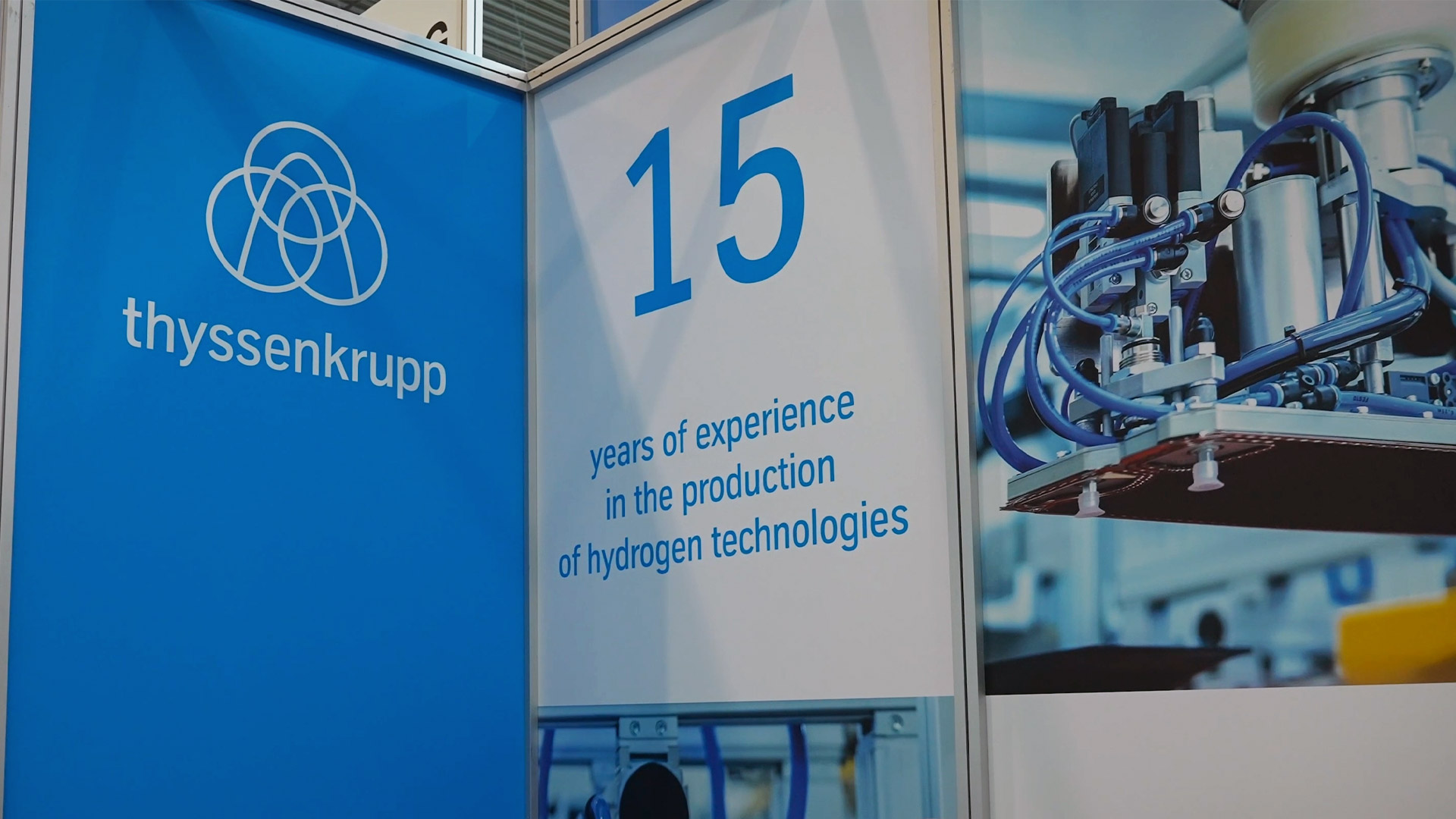Thyssenkrupp Automation Engineering develops and builds customized plants for the series production of fuel cells and electrolysers. As part of the Thyssenkrupp Group in the Automotive Technology segment, the company is a key player in the industrial implementation of the hydrogen economy – from the concept phase to production readiness. The goal: to realize technologies that enable climate-friendly energy generation and mobility in an economically viable manner.
In the field of production technology, Thyssenkrupp Automation Engineering is one of the few companies that covers the entire process from development to series production. Its offering is aimed at manufacturers who want to scale up their production of fuel cell stacks or electrolysers – from small pilot quantities to several thousand units per year. The company not only supplies the technical equipment, but also implements a well-thought-out concept: with its 360° Solution, the company supports its customers from product development and production optimization to the start of series production. The aim is to industrialize new technologies in such a way that they can be manufactured in a marketable and cost-efficient manner.
The 360° Solution concept encompasses consulting, process development, plant engineering, and after-sales service. Customers receive support right from the product definition phase to ensure that design and production processes are optimally coordinated. This also includes analyzing cost structures, planning production layouts, and providing support in discussions with investors or banks. Young companies in particular that want to gain a foothold in hydrogen technology benefit from this close support. They often lack experience in series production. Thyssenkrupp Automation Engineering helps to optimize products technically and make them ready for the market. At the same time, production concepts are developed that remain scalable even as demand increases.

The customer structure ranges from young start-ups to established OEMs and Tier 1 suppliers. While start-ups usually still need support with the technical implementation and scaling of their ideas, OEMs have their own development departments and clear requirements for production lines. Here, Thyssenkrupp Automation Engineering takes on the precise implementation of individual plant concepts. For Tier 1 suppliers, the focus is on the series production of components that are delivered in large quantities to vehicle manufacturers. In this area, too, the company develops flexible, automated production systems that meet the highest quality standards. Thyssenkrupp Automation Engineering thus bridges the gap between innovation, scalability, and industrial maturity.
Despite technological progress, the industry faces structural hurdles. In the early 2020s, optimism was high: hydrogen was considered a key technology for the energy transition. However, many projects stagnated because investment and production capacities blocked each other – a classic chicken-and-egg problem. Often, there was a lack of perspective on the entire value chain: from the production of green hydrogen to transport and storage to its application in industry and mobility. Without a clear political framework, government support, and coordinated infrastructure projects, development remains fragmented.
According to the company, the European hydrogen economy needs binding strategies, long-term investment security, and overarching responsibility. The transformation can only succeed if all links in the value chain – from energy producers to technology providers – act in a networked manner. Thyssenkrupp Automation Engineering emphasizes that large companies in particular play a key role here. They have the resources and expertise to integrate related areas such as power generation, distribution, and infrastructure. Nevertheless, many gaps remain that are unlikely to be closed without targeted government support. It is crucial not to distribute subsidies indiscriminately, but to invest specifically in technologies that generate real economies of scale and ensure sustainable value creation in Europe.
Thyssenkrupp Automation Engineering is positioning itself as a pioneer of a competitive hydrogen industry. With extensive experience in plant engineering, a well-thought-out 360° concept, and a deep understanding of production processes, the company is helping to turn technological visions into industrial reality. The challenge remains: coordinated cooperation between industry, politics, and research is essential to exploit the long-term potential of hydrogen—and to strengthen Europe as a location for sustainable energy and mobility systems.